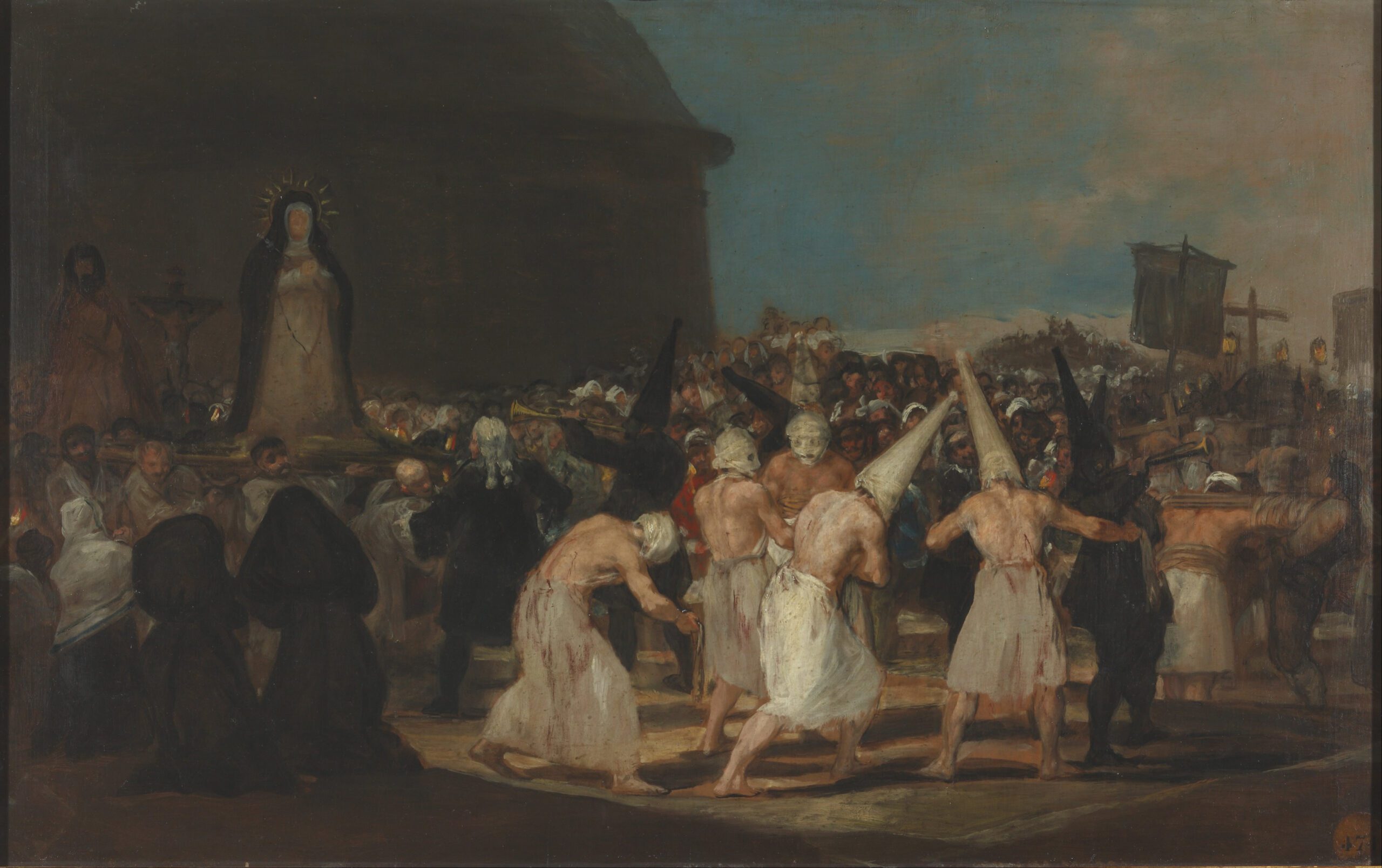The slogan ‘religion-leads-to-violence’ finds plausibility today not through logic or the facts but through simple repetition.
I am amazed how frequently this criticism comes up. At lunch a couple of weeks ago a friend insisted that ‘most of the wars of history’ were started by religion. I asked him to be specific, and he mumbled something about the Crusades, the Inquisition and Northern Ireland—hardly ‘all wars’. Perhaps he had just read Christopher Hitchens’ God is not Great: How Religion Poisons Everything. The subtitle says it all: faith robs happiness at the personal level and ruins cohesion at the social level. Richard Dawkins’ Root of all Evil? ran a similar argument. And my friend would have found extra support in the beautifully shot documentary running on SBS at the moment, Secret Files of the Inquisition. All of this was picked up recently by the Sunday Age’s production editor, Michael Coulter, in a stinging piece of secularist apologetics. “The question I can’t escape,” he tells us after presenting the usual litany of religious evils, “is why so many people clearly prefer the realm of faith, the realm of the Inquisition and of violent jihad, to the realm of thought.”
The ‘religion-leads-to-violence’ mantra has become a truism in our culture only because fascinating people, popular books and high-production documentaries say it over and over.
But ‘thought’ is not the secularist’s best ally in this case. The ‘religion-leads-to-violence’ mantra has become a truism in our culture only because fascinating people, popular books and high-production documentaries say it over and over. But it isn’t true—certainly not in the blanket sense intended. I can’t speak for Muslims but I know most Christians would ask the Coulters, Dawkinses and Hitchenses of the world to consider the following thoughts.
First, I doubt you will find any Christian today who is not rightly and deeply ashamed of the Inquisition and the Crusades. We all confess, and were doing so long before the secularists’ criticisms, that these were terrible departures from the faith. We concede with pain that Christendom has done some great evil.

That said, secondly, most retellings of these stories involve gross exaggerations. Historians estimate that the Spanish Inquisition killed approximately 5000-6000 people over its 350-year history. That’s fewer than 18 a year. One a year is too many, but the number hardly sustains the monstrous narratives we often hear. Likewise, the Northern Ireland troubles—if indeed they were religiously inspired—caused the deaths of about 3500 people over a thirty year period. Again, one death ‘in the name of Christ’ is a blasphemy but the iconic status of these two evils of Christendom exceeds the reality.
Thirdly, we should always be suspicious of an argument that cannot concede anything to the other side. It is naïve or dogmatic not to admit the great good done in Christ’s name throughout history (need I list them?!). Even today most non-Government welfare in this country is delivered through faith-based agencies. Create a list of all the organizations you know and do the maths. And, according to government figures, a disproportionate amount of philanthropic giving and volunteering is offered by those who regularly attend church. This doesn’t make Christians better than secularists but it belies the claim that they are worse. And that is definitely what some are saying at the moment—religious people poison everything, they are the root of all evil, they prefer Inquisition to thought, and so on.
When Christians are violent and imperialistic they are not obeying Jesus but defying him who said “love your enemy and do good to those who hate you.”
Fourthly, the elephant in the atheist’s room is that there have only been three formally atheistic regimes in world history — Stalin, Mao, Pol Pot — and they weren’t exactly improvements! Stalin’s openly and ideologically atheistic project killed more people each week than the Spanish Inquisition did in a third of a millennium. Sure, you could say this was ‘fanatical’ not representative. But that’s the point. Fanaticism is the problem, not faith or unbelief.
Fifthly, anyone can tell you that when Christians are violent and imperialistic they are not obeying Jesus but defying him who said “love your enemy and do good to those who hate you.” At best, the criticisms launched by Hitchens, Dawkins and Coulter only prove that Christians haven’t been Christian enough. Believers confess that daily, and look to Christ for mercy and guidance.
Finally, there is an awkward question that atheist critics have to face. It has to do with atheism’s intellectual capacity to restrain hatred and inspire love. Christians and atheists alike are capable of both love and hate. Agreed. But when Christians love they do so in full accordance with a worldview that begins with the love of God and the inherent value of His beloved creatures. When they hate they do so in logical defiance of that worldview. What is there in the atheist’s perspective that can rationally inspire love and discourage hate? I know that most atheists (in the Christianized West) choose love over hate but, if human beings are only accidents in an unknowing universe, how can this choice be anything more than a mere preference, a product of ‘feelings’ as atheist Bertrand Russell famously acknowledged? On what grounds can the atheist speak rationally of the high and equal value of the poor or the weak or the asylum seeker? Put another way, only one way of life is logically compatible with Christianity; any kind of life is logically compatible with atheism.
Dr John Dickson is a Director of the Centre for Public Christianity and is a Senior Research Fellow of the Department of Ancient History, Macquarie University.
This article first appeared on ABC Online Opinion and Analysis.